☰

Lorrain’s scramjet
Scramjet flow-field | RAS turbulence modelling
![]() Working directory located here
Working directory located here
![]() J.-J. O.E. Hoste, V. Casseau, M. Fossati, I. J. Taylor, and R. Gollan, "Numerical Modeling and Simulation of Supersonic Reacting Flows in Propulsion Systems by Open-Source Solvers," 21st AIAA International Space Planes and Hypersonic Systems and Technologies Conference (Xiamen, China, 6-9 March 2017), AIAA Paper 2017-2411, 2017 [PDF Preprint→]
J.-J. O.E. Hoste, V. Casseau, M. Fossati, I. J. Taylor, and R. Gollan, "Numerical Modeling and Simulation of Supersonic Reacting Flows in Propulsion Systems by Open-Source Solvers," 21st AIAA International Space Planes and Hypersonic Systems and Technologies Conference (Xiamen, China, 6-9 March 2017), AIAA Paper 2017-2411, 2017 [PDF Preprint→]
Stage 1 - Fuel-off
1. CASE SETUP
1.1 Geometry & Mesh
Lorrain’s scamjet geometry

The mesh is composed of 322080 hexahedra, and the maximum first cell distance to physical walls is less than 5 x 10-6 m ensuring that the first cell is located inside the viscous sublayer.
1.2 Case conditions
The inflow (in) conditions of the fuel-off Lorrain scramjet case are:
- Main = 7.32
- pin = 4100 Pa
- Tin = 370 K
- Uin = (2830 0 0) m/s
- XN2, in = 0.79
- XO2, in = 0.21
- XH2, in = 0.0
The no-slip isothermal walls are maintained at a temperature of 300 K.
1.3 Thermo-chemical and transport models
This test case is using the following thermo-chemical and transport models:
- thermally-perfect gas (excluding the electronic energy contribution)
- no chemical reactions
- thermal equilibrium
- species viscosity & thermal conductivity: CEA2
- mixing rule: Wilke
- no species diffusion
- turbulent model: k-omega SST
1.4 Time controls
The initial time-step is set to 1 x 10-10 s and the maximum CFL number is 0.1. The simulation end time is equal to 0.0013 s.
2. RUNNING
The following commands will copy the mesh from
./Allclean
./Allrun
To run hyFoam in parallel (say on 4 CPUs), please first edit the
./Allclean
./Allrun 4
3. FLOW VISUALISATIONS IN PARAVIEW
Contour plots of pressure for hyFoam and Eilmer show a similar shock structure

Shock induced boundary layer separation with contours of velocity and turbulent kinetic energy for both solvers
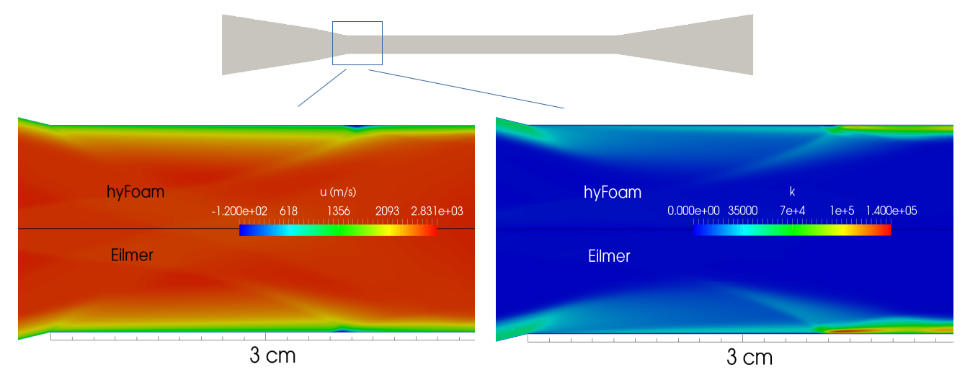
A comparison between the experimental Schlieren and CFD results (gradient of density) for the fuel-off conditions (scales do not match perfectly).
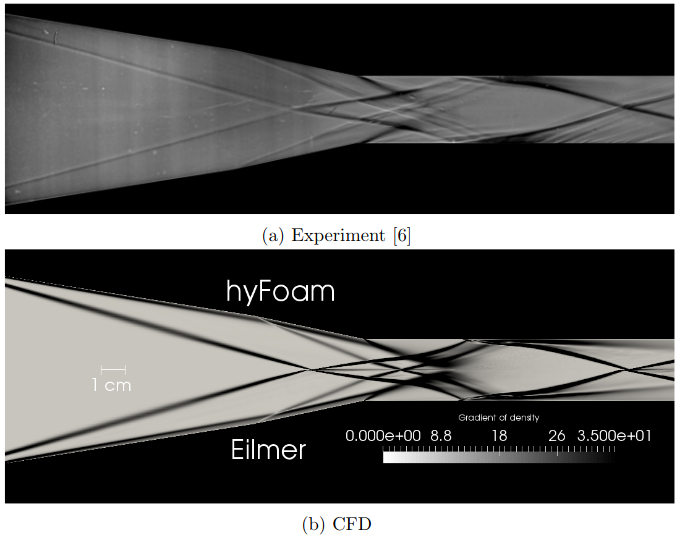
4. SOLUTION
Static pressure along a streamline starting 1.5 mm from the combustor’s entrance wall
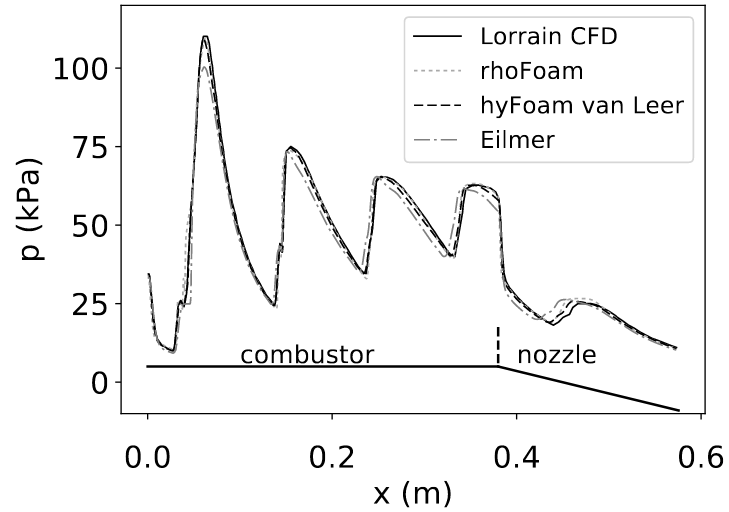
Temperature and velocity profiles at the entrance of the combustor section for Eilmer and hyFoam
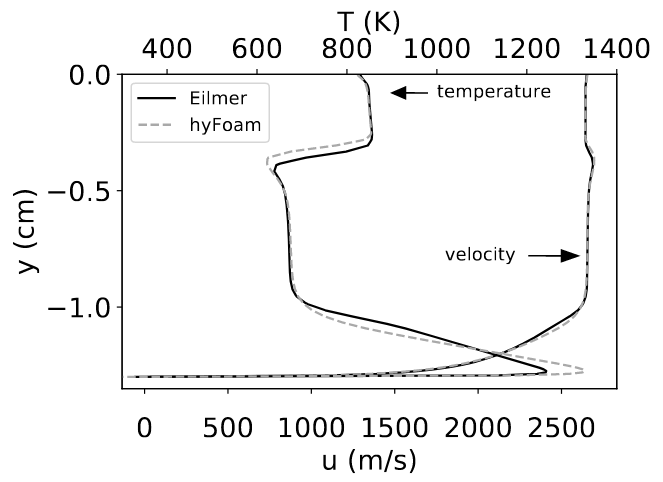
Pressure coefficient along the wall

Close-up view of the pressure coefficient in the combustor section
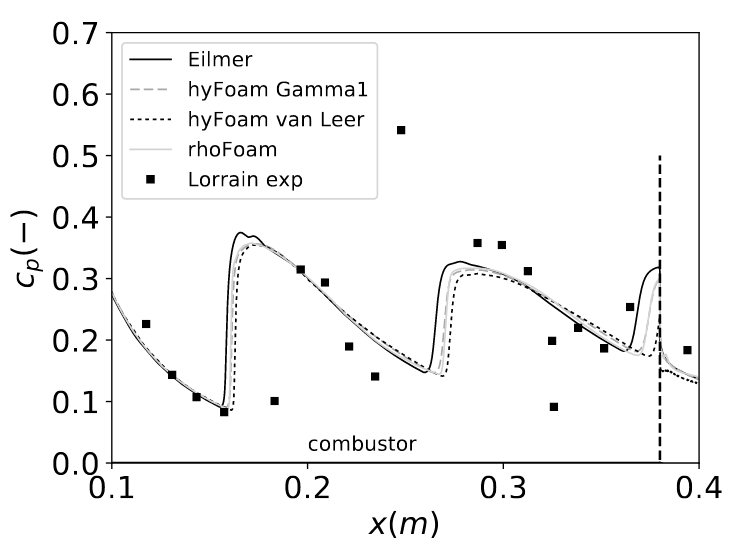
![]() Additional references
Additional references
Eilmer3 is a research and educational simulation code for 2D and 3D gas dynamics designed by Dr Peter Jacobs, Dr Rowan Gollan, Dr Daniel Potter and others (University of Queensland, Australia) [Eilmer3 Website→]
Eilmer3, Eilmer4 | J.-J. O.E. Hoste, "Scramjet Combustion Modeling using Eddy Dissipation Model," PhD thesis, University of Strathclyde, Glasgow (UK), 2018 [PDF→]
rhoCentralFoam, Eilmer3, hyFoam | D. Puorto, "Suitability of rhoCentralFoam for Scramjet Internal Flows," Master's thesis, University of Naples Federico II, Naples (Italy), 2017
Contributors: Dr Jimmy-John O.E. Hoste, Daniela Puorto, Dr Vincent Casseau